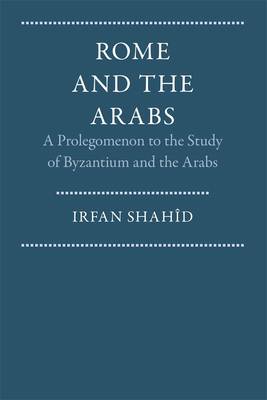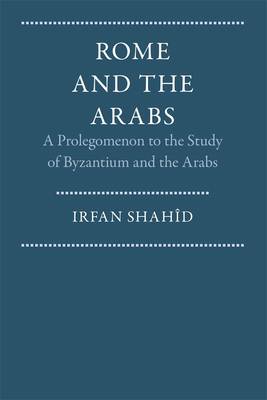
- Afhalen na 1 uur in een winkel met voorraad
- Gratis thuislevering in België vanaf € 30
- Ruim aanbod met 7 miljoen producten
- Afhalen na 1 uur in een winkel met voorraad
- Gratis thuislevering in België vanaf € 30
- Ruim aanbod met 7 miljoen producten
Zoeken
€ 52,45
+ 104 punten
Omschrijving
The Arabs played an important role in Roman-controlled Oriens in the four centuries or so that elapsed from the Settlement of Pompey in 64 BC to the reign of Diocletian, AD 284-305. In Rome and the Arabs, Irfan Shahîd explores this extensive but poorly known role and traces the phases of the Arab-Roman relationship, especially in the climactic third century, which witnessed the rise of many powerful Roman Arabs such as the Empresses of the Severan Dynasty, Emperor Philip, and the two rulers of Palmyra, Odenathus and Zenobia. Philip the Arab, Shahîd argues, was the first Christian Roman emperor and Abgar the Great (ca. AD 200) was the first Near Eastern ruler to adopt Christianity. In addition to political and military matters, the author also discusses Arab cultural contributions, pointing out the role of the Hellenized and Romanized Arabs in the urbanization of the region and in the progress of Christianity, particularly in Edessa under the Arab Abgarids.
Specificaties
Betrokkenen
- Auteur(s):
- Uitgeverij:
Inhoud
- Aantal bladzijden:
- 232
- Taal:
- Engels
- Reeks:
Eigenschappen
- Productcode (EAN):
- 9780884024279
- Verschijningsdatum:
- 20/05/2025
- Uitvoering:
- Paperback
- Formaat:
- Trade paperback (VS)
- Afmetingen:
- 159 mm x 235 mm

Alleen bij Standaard Boekhandel
+ 104 punten op je klantenkaart van Standaard Boekhandel
Beoordelingen
We publiceren alleen reviews die voldoen aan de voorwaarden voor reviews. Bekijk onze voorwaarden voor reviews.








